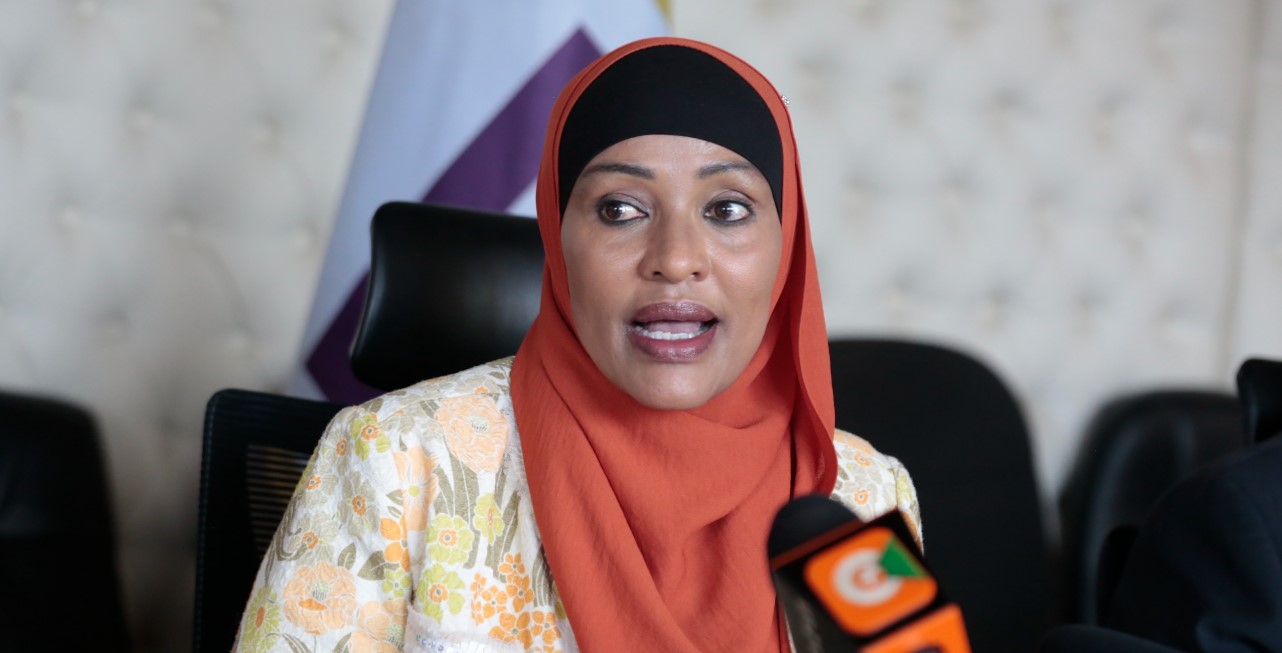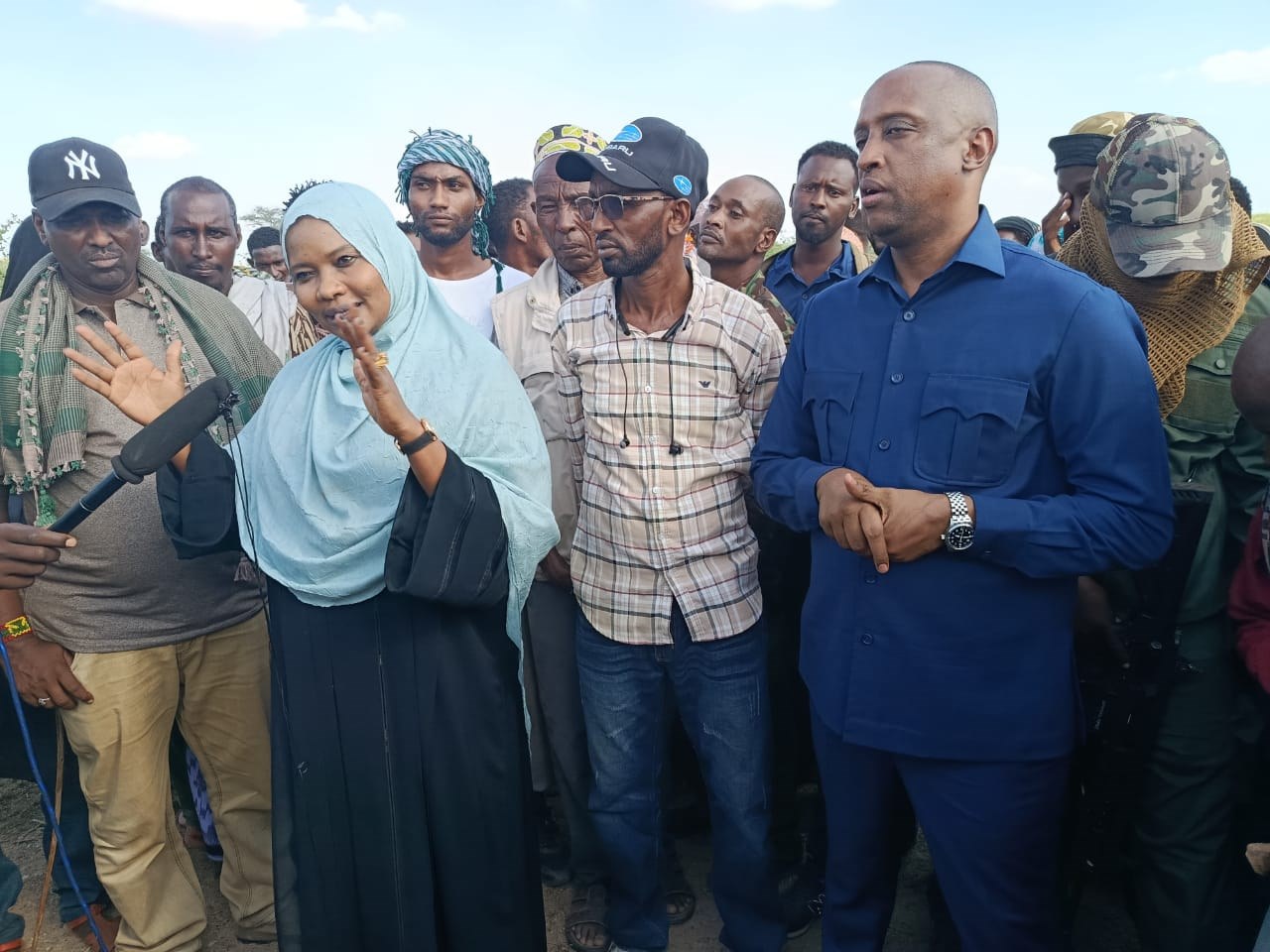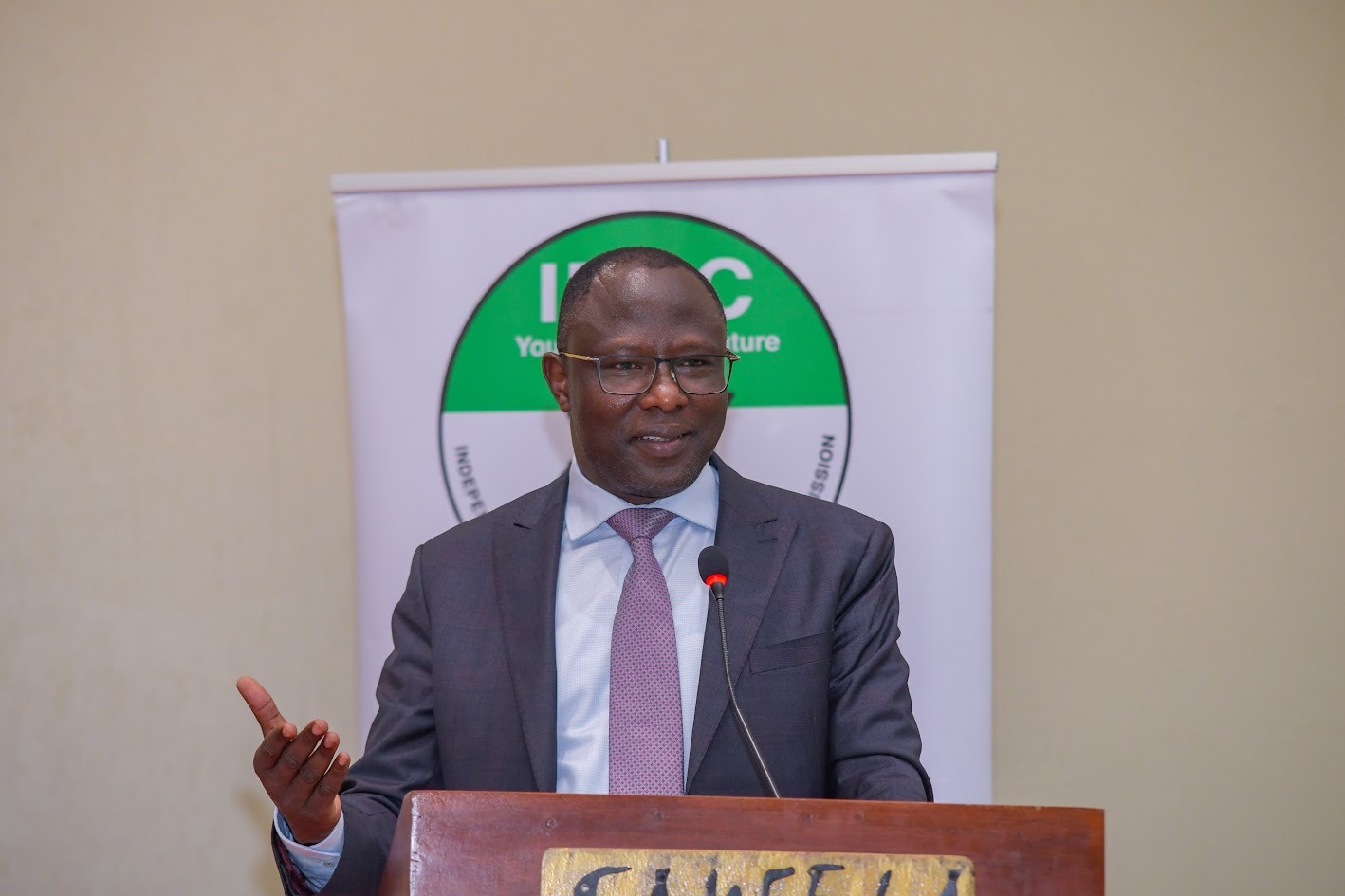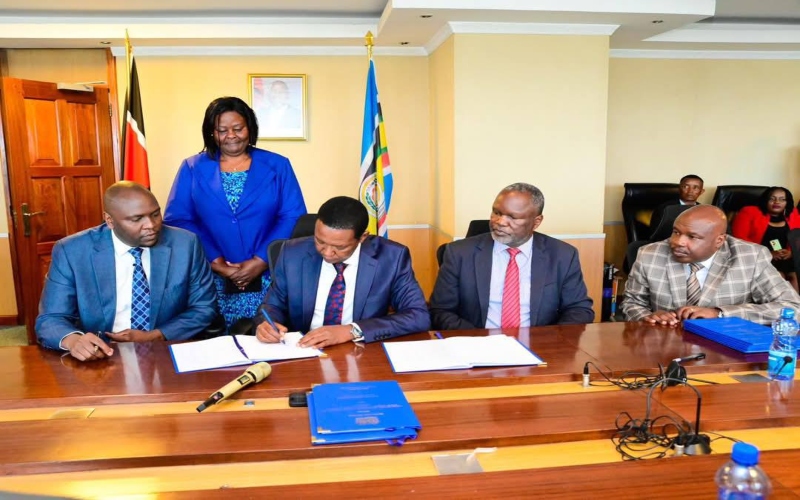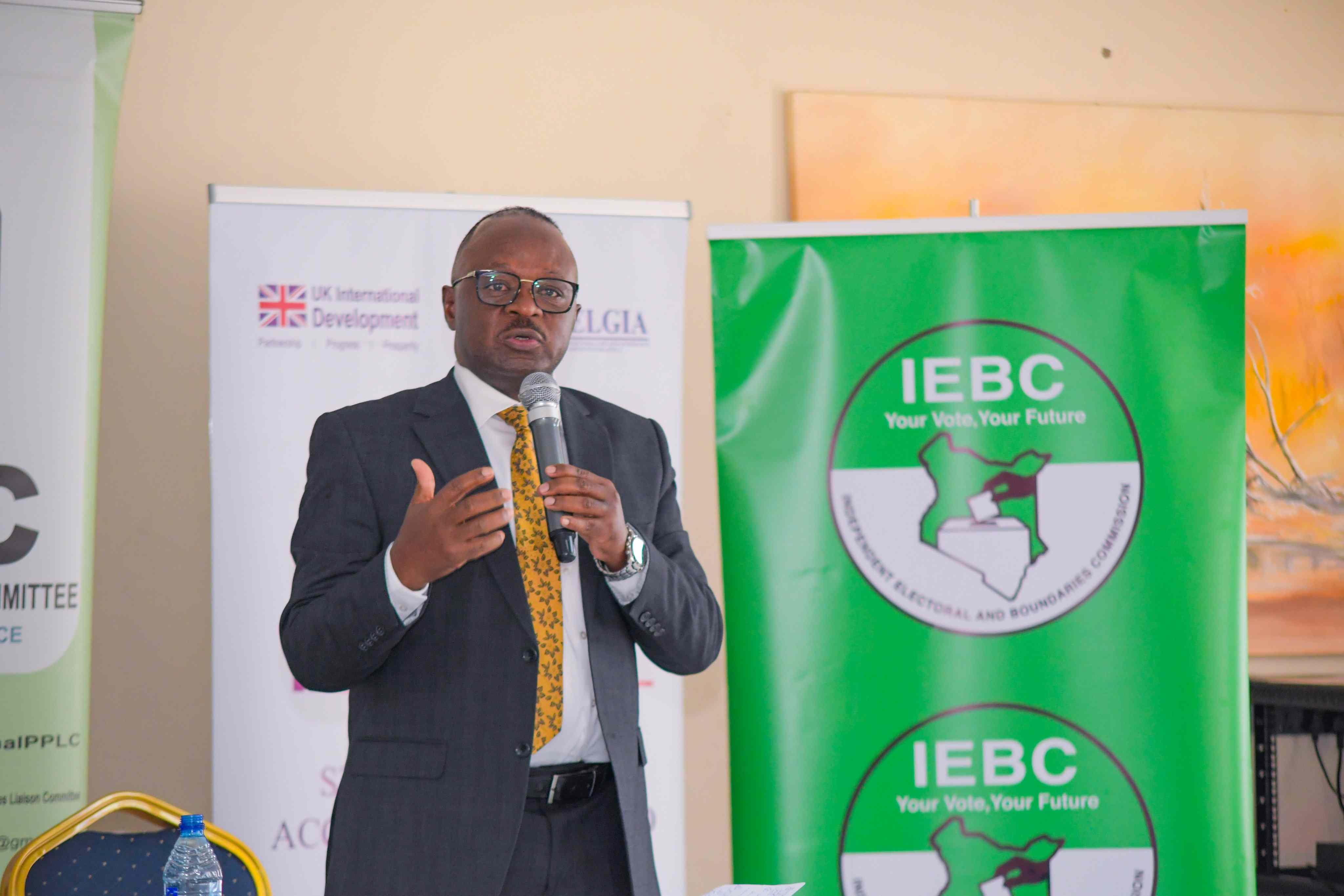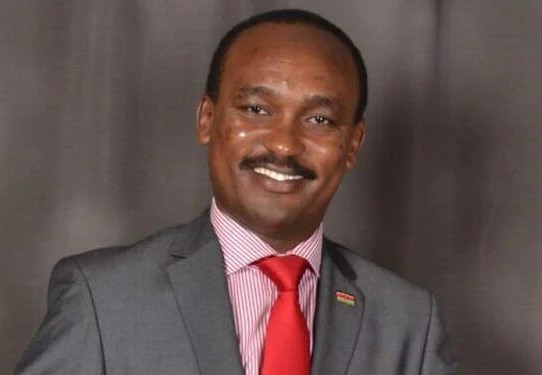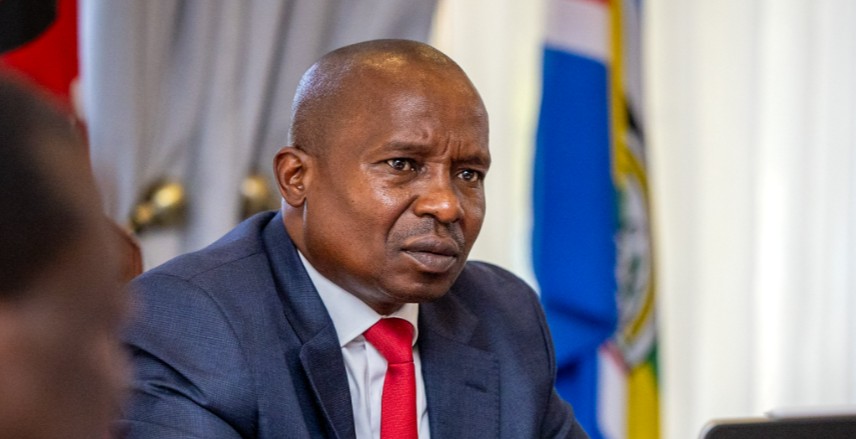Somaliland opposition leader Abdullahi ‘Irro’ elected president of breakaway region
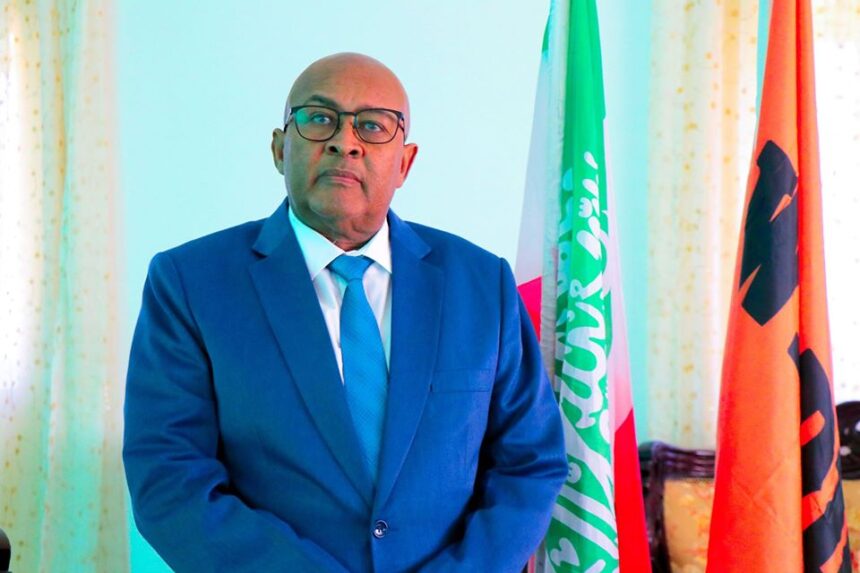
Political analyst Mustaf Abdi says incoming President Irro has a lot on his plate when he takes over the country’s leadership.
Somaliland has elected Dr Abdirahman Mohamed Abdullahi “Irro” as its new president, the sixth leader of the breakaway region of Somalia.
“Irro” in Somali means hoary-headed.
More To Read
- Somalia adds Northeastern State to federal map despite Somaliland objections
- China reacts harshly to US senator’s Somaliland remarks
- Somalia officially recognises SSC-Khatumo as 6th federal member state in historic unity move
- Ethiopia's Red Sea gambit: Why Somaliland remains prime option
- Somalia Independence Day celebrations banned in Eastleigh over security fears
- Raila hosts Somaliland President Abdirahman Abdilahi in farewell dinner, rekindling ties
Abdirahman beat incumbent Musa Bihi Abdi in a much-followed and tense election that attracted both regional and international interests.
According to the provisional results announced on Tuesday, six days after the election, President-elect Irro garnered 407,908 votes out of 638,126 valid votes cast votes or 63.92 per cent of total votes. His main rival, current President Bihi, came second with 225,519 votes. Feisal Ali Warabe came third with a paltry 4,699 votes.
More than half a million voters cast their ballots in over 2,000 polling stations in over four regions. In the Sool region, the epicentre of the recent war between locals and Somaliland, the election took place in pockets areas including in the Sanaag region.
Somaliland region claims to have seceded from Somalia in 1991 but is unrecognised internationally. The region went to the polls — its fourth peaceful presidential elections since 2003 — on Wednesday, November 13, to elect its new president following a two-year delayed poll.
Top in this year’s Somaliland election agenda was the economy, national unity, social stability, security, recognition as well as improving the democratic space. The winner was announced six days after the election ended.
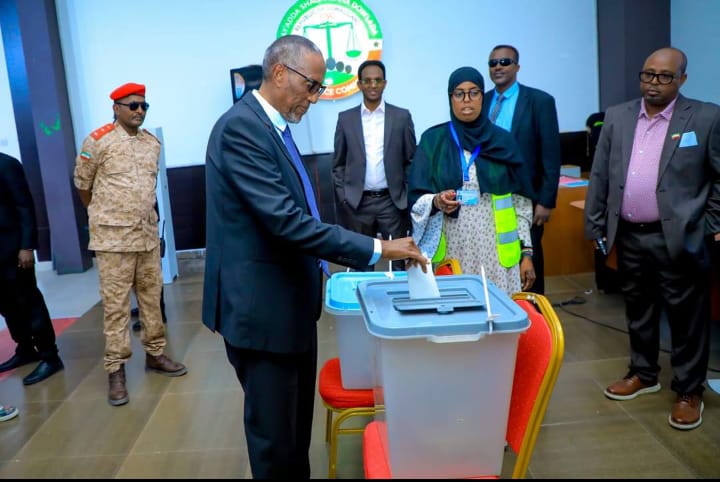 Incumbent Somaliland President Musa Bihi Abdi casting his ballot in the elections held on November 13, 2024. (Photo: Handout)
Incumbent Somaliland President Musa Bihi Abdi casting his ballot in the elections held on November 13, 2024. (Photo: Handout)
Congratulatory messages
“The national election commission officially announces Waddani political party has won the provisional results for the presidential and vice-presidential election. The presidential election has been won by Waddani political party whose presidential candidate is Abdirahman Mohamed Abdullahi,” Somaliland National Electoral Commission Chairman Muse Hassan Yusuf said Tuesday at the commission’s offices in central Hargeisa.
Muse said as required by the law, the commission will now hand over the provisional results to the Somaliland High Court to allow any appeals by any aggrieved parties.
This means, President-elect Irro’s supporters will have to wait a bit longer before he is sworn into office and takes over the mantle from his rival Bihi.
Congratulatory messages have started trickling in with one of the first messages sent by Djibouti’s President Ismail Omar Guelleh. Somalia’s Prime Minister Hamza Abdi Barre also congratulated Irro.
“Congratulations to the newly elected president of Somaliland, Mr Abdirahman Mohamed Abdillahi, and to the brotherly people of Somaliland for their political maturity,” President Ismail posted on his X account moments after the provisional results were announced.
Feisal Ali Warabe, who emerged third, conceded defeat and congratulated the people of Somaliland and President-elect Irro and pledged to work with his government.
Other Topics To Read
Sitting President Bihi is yet to concede and congratulate Irro.
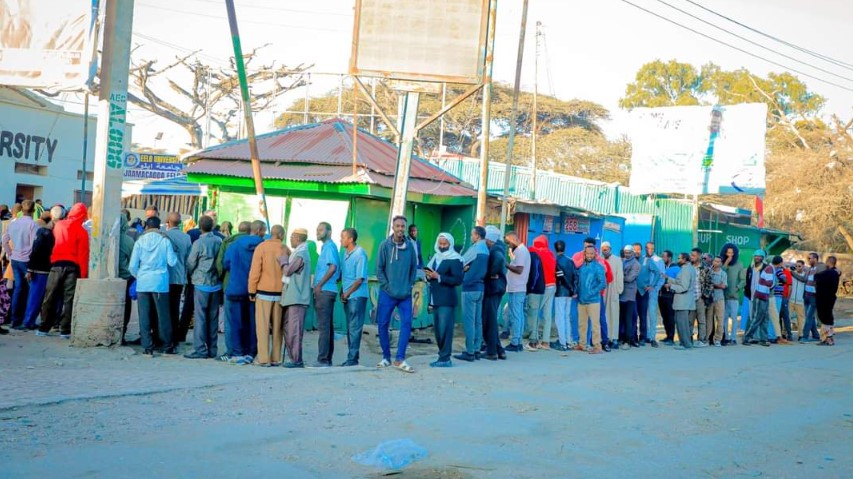
Former president dies
Meanwhile, Somaliland is also mourning the death of its former president Ahmed Mohamed Mohamud “Siilanyo” who recently passed away in Hargeisa. The late former president was Tuesday given a state burial in Hargeisa, which was attended by thousands including senior officials. President-elect Irro and President Bihi both attended his burial.
Twenty-four-year-old Ayan Hirsi Adan is among the passionate Waddani party supporters; she explains why she voted for President-elect Irro.
“We are elated Irro will be our next president. We voted Muse Bihi out because he destabilised Somaliland causing ethnic divisions as well as sidelined us from the world by signing a controversial maritime deal with Ethiopia to give it access to the sea in exchange for fake recognition. Ethiopia is itself at war, who can it recognise?” Ayan told The Eastleigh Voice by phone.
“Today, we celebrate our victory and tomorrow we start working to rebuild the lost trust and rebuild our country,’ she added.
Political analyst Mustaf Abdi says incoming President Irro has a lot on his plate when he takes over the country’s leadership.
“There is a lot of hope with the new president. Muse Bihi is a military officer, Irro is a civilian politician. In the last seven years of Bihi’s rule, our economy has gone down. We have had conflicts internally for the first time since Somaliland was formed. We are very optimistic President-elect Irro will bring back stability, investor confidence and even mend ties with our neighbours because he is more diplomatic. He has a lot of work ahead,” he said.
Keyse Abdi, a supporter of President Bihi, speaking from Berbera port city, said they accept the verdict even though it is bitter to swallow.
“Muse Bihi was so close to bringing recognition to Somaliland. He did his best during his time to steer the country forward. Our biggest regret is the war he instigated against our own people in Las Aanod and I think that’s what caused him the seat. We are sad but we accept the defeat,” Abdi told The Eastleigh Voice.
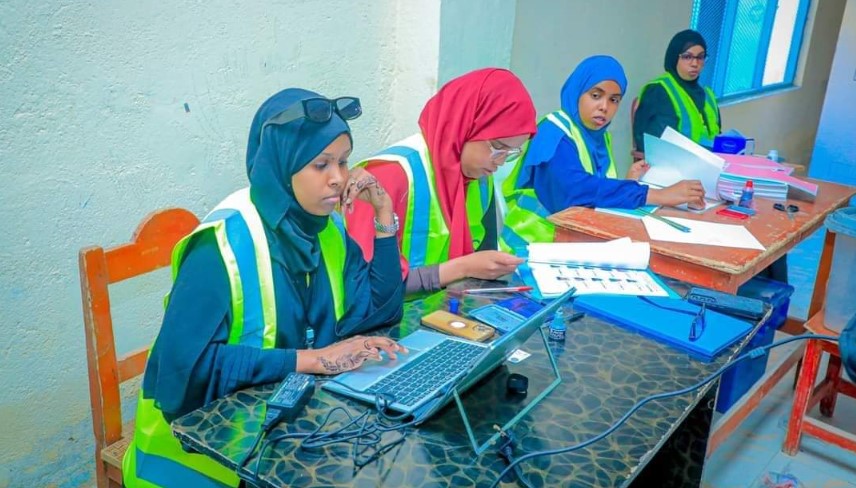 Election officials at work during the Somaliland elections held on November 13, 2024. (Photo: Handout)
Election officials at work during the Somaliland elections held on November 13, 2024. (Photo: Handout)
In this election, the public also voted for political parties’ popularity, with President Irro’s Waddani party emerging top, followed by a new party, Kaah, led by Mahamud Hashi and the ruling party Kulmiye coming third. The three parties will now be the official political parties in Somaliland in the next decade.
Warabe’s Justice and Welfare party will now sit out for the next 10 years as per the new law set to increase the democratic space in Somaliland.
Somaliland, a self-declared state in northwest Somalia, compared to the war-ravaged southern regions of Somalia, enjoys relative stability and peace and has consistently held universal suffrage peaceful elections since 2003.
In January this year, President Bihi signed a controversial maritime agreement with Ethiopia giving it access to the sea in exchange for recognition. The agreement is yet to be implemented and has caused serious diplomatic rifts with Somalia which accuses Ethiopia of interfering with its sovereignty.
Top Stories Today

